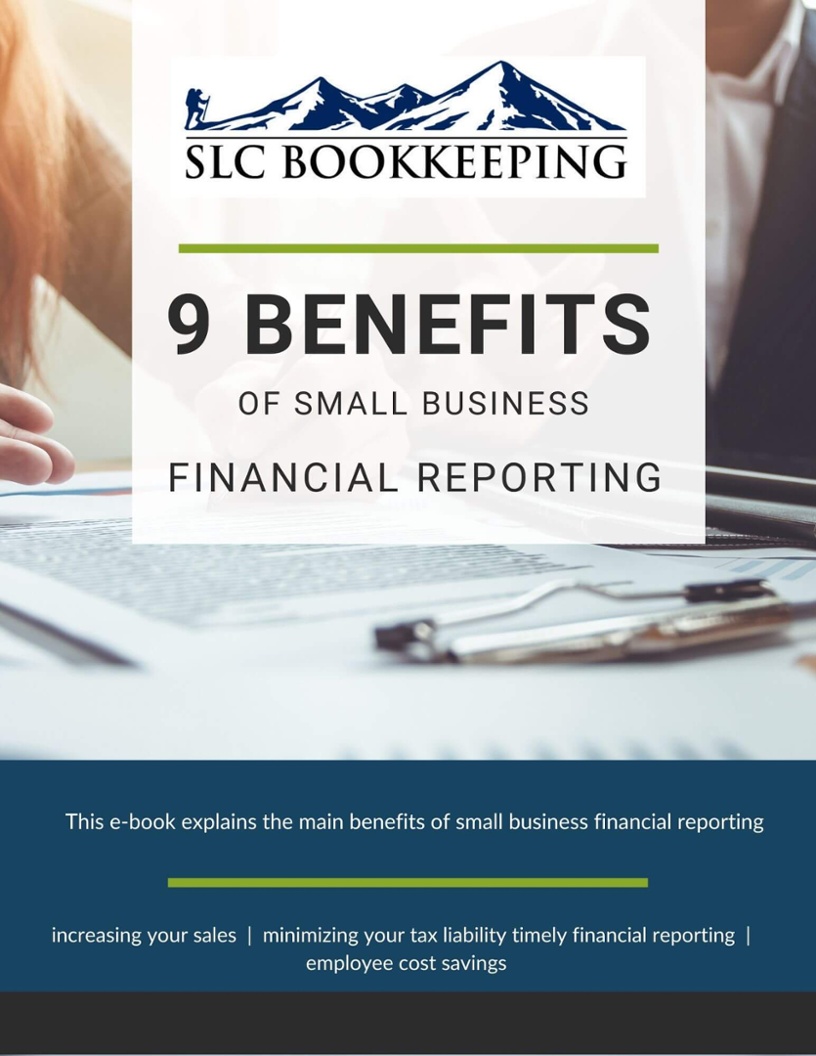4 Common Misconceptions About Your Small Business Bookkeeping
 Working with lots of different small business owners we see a lot of misconceptions about bookkeeping. Many business owners just don't have the education or background to understand small business financials. Other business owners truly don't care about their bookkeeping. When you are looking at your small business bookkeeping it is important to understand the system and where the numbers come from that create your financial reports. Here are four common misconceptions about small business bookkeeping.
Working with lots of different small business owners we see a lot of misconceptions about bookkeeping. Many business owners just don't have the education or background to understand small business financials. Other business owners truly don't care about their bookkeeping. When you are looking at your small business bookkeeping it is important to understand the system and where the numbers come from that create your financial reports. Here are four common misconceptions about small business bookkeeping.
Bank Deposits = Income
Many small business owners associate the deposits made into their various accounts with income. I often cringe when small business owners tell me that their CPA filed their taxes off of their bank statements. First off, I don't even understand how this is possible and it certainly isn't accurate. Second, just because there is a deposit in your bank account doesn't mean it is income. When you transfer money from one account to another this is not income, this is simply an account transfer. Recording that transfer as income would be a mistake and it would overstate income. If you make an owner contribution to your business for startup funds or to cover a cash shortage this is an equity move not income.
If you truly only have sales being deposited into your bank account you are still short changing yourself with this system. You are not classifying sales into various categories, which will tell you which segments of your business are performing well. Additionally you are trusting that all of your customer payments are making it to your bank account. Rather, you should be recording payments in QuickBooks and using your bank statements to verify your deposits. If you don't do this you are trusting your merchant processor, employees, and yourself to get all deposits into the bank.
Just Pay Them As A Contractor
When a business owner needs help and finally hires someone I often hear them say, "I will just pay them as a contractor." Unfortunately if independent contractors are not handled correctly there can be some huge consequences for the business. Staying in compliance with independent contractors is a major concern, but very few businesses properly handle their 1099 independent contractors. Most small businesses will try and go the contractor route when hiring because they think it is cheaper and less risky. The problems come when you are not handling all segements of this correctly, it can prove to be a pretty costly route. It is attractive to pay people as contractors because you save on payroll taxes and workers comp insurance. However, having a true independent contractor is quite rare. Here are a few things you definitely want to be sure your independent contractors have:
- Ideally they would be set up as a corporation or LLC
- You want a W-9 form filled out with their current information
- A copy of their general liability insurance and workers comp insurance (or workers comp waiver certificate)
- A copy of their business license
- Proof that they have other clients (you are not their only means of being in business) and that they are pursuing other clients
- A contractor agreement
In addition to all of that you want to make sure you follow the guidelines for independent contractors. The biggest thing I see people make a mistake on is setting a contractors schedule; if you are doing that you have an employee not a contractor. While it may seem attractive from a cost standpoint to pay someone as a contractor rather than an employee this can be quite costly if handled improperly.
Sales = Good, Cash Flow = Bad
Misinformed owners will often ask us "If my sales are so good why isn't there any money in my checking account?" Typically when this happens an owner is looking at a profit and loss on an accrual basis. This only shows what invoices have been sent for the period in question, not what has been received. What you can do is look at a profit and loss on a cash basis. Another option is to run an accounts receivable aging report. Just because you sent an invoice doesn't mean this automatically turns into cash flow. Invoices collected equal cash, not invoices sent. Business owners often get psyched when they close a new deal and invoice a new customer. However, that is only half the battle. I don't even consider a deal closed until money is received and cleared the bank. You can increase cash flow by staying on top of your accounts receivable. Other options are to establish clear billing policies and communicate them with your customers. You can increase cash flow by emailing invoices from QuickBooks, accepting credit cards, or getting paid up front (at least a percentage of your bill).
Trusting Your Financial Reports
One other mistake I see small business owners make is to trust their financial reports without questioning them at all. Smart business owners take the time to review the financial reporting that they receive from their bookkeeper. You can't take your financial reports as being accurate without auditing your bookkeeper. It is important to understand your financial reports and where the numbers come from. The problem is that most business owners don't understand their reports or what makes up the figures they are looking at. You need to learn the basics of your bookkeeping system so that you can fully trust your financial reports. There is absolutely nothing wrong with questioning your bookkeeper about your financial reports. In fact doing so will keep them honest and on their toes.
What aspects of your small business bookkeeping are confusing to you?
Photo Credit © Dollar Photo Club / Mark Carrel


Comments